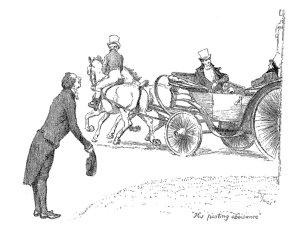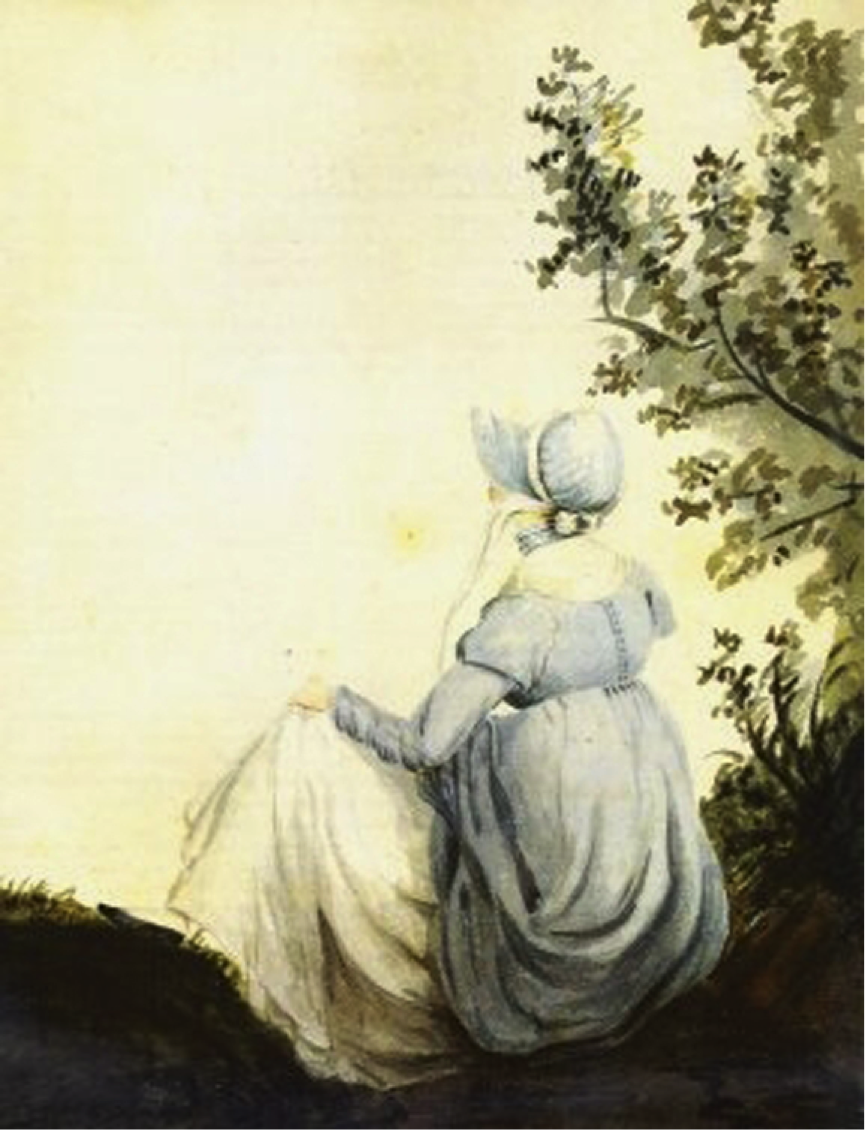by Brenda S. Cox
“The simplicity and cheerfulness of her nature, her contented and grateful spirit, were a recommendation to everybody, and a mine of felicity to herself.” –On Miss Bates, in Emma.
One path to joy is through gratitude. Jane Austen’s novels are full of mentions of thankfulness, gratitude and ingratitude. In The Complete Works of Jane Austen I found 722 mentions in total; more than a hundred per novel! Sometimes Austen uses thankfulness ironically, but usually she uses it seriously. Here are two of the many ways she uses gratitude in her novels:
The Duty of Gratitude
Gratitude, especially to your parents or those who raised you, was a religious duty in Austen’s England. Several characters fail at this duty. In Mansfield Park, for example, Mary Crawford speaks disrespectfully of Admiral Crawford, who helped raise her and her brother. Fanny Price calls her ungrateful. Edmund says, “Ungrateful is a strong word,” and points out that Mary is probably grateful to her aunt, though not to her uncle.
In Sense and Sensibility, John Dashwood, Elinor and Marianne’s half-brother, does not keep his promise to his father. His wife tells him he owes “no particular gratitude” to his father, because his father would have left everything to his wife and daughters if he could have. So John ignores all the gratitude he does owe to his father, for raising him, and instead selfishly keeps all of his inheritance to himself.
Elizabeth is not deceived, though. “Neither duty, nor honour, nor gratitude,” she replied, “have any possible claim on me, in the present instance. No principle of either would be violated by my marriage with Mr. Darcy.” It’s a little excessive to think that Elizabeth owed Lady Catherine for entertaining her a few times, so much that she would not marry Darcy!
Excessive Gratitude: Mr. Collins and Miss Bates
Two of Austen’s comic characters express gratitude too much: Mr. Collins of Pride and Prejudice, and Miss Bates of Emma.
Mr. Collins, for example, after an evening’s entertainment with Lady Catherine, leaves with “many speeches of thankfulness.” When he plays a game with her, in which small tokens called fish are won or lost, he thanks her for every fish he wins, and apologizes if he thinks he wins too many! When he writes thanking the Bennets for their hospitality, he writes “with all the solemnity of gratitude which a twelvemonth’s abode in the family might have prompted.”

Miss Bates, likewise, thanks people for every kind word, every inquiry after her niece, every gift or service.
Both of these characters can certainly be irritating. However, one is beloved and the other isn’t. Why is that?
Mr. Collins, Austen writes, is “altogether a mixture of pride and obsequiousness, self-importance and humility.” His thanks is calculated to gain favor for himself. And he has no real humility, but plenty of pride. When Elizabeth refuses his marriage proposal, he does not consider that there might be anything lacking in himself. Instead he immediately goes to Charlotte, to prove that he is worthy of becoming a husband. His pride and false humility do not make him loved.
Miss Bates, on the other hand, is very different. Austen tells us, “The simplicity and cheerfulness of her nature, her contented and grateful spirit, were a recommendation to everybody, and a mine of felicity to herself.” She is always cheerful, always contented, and always humble. Even when Emma insults her, she feels she must have deserved it.

Miss Bates and her mother live on a very low income. However, she is content with what she has. She says, “Our friends are only too good to us. If ever there were people who, without having great wealth themselves, had every thing they could wish for, I am sure it is us. We may well say that ‘our lot is cast in a goodly heritage.'” She is quoting (approximately) from the Bible, from Psalm 16:6. She is thankful for all she has.
When I give thanks, I want my heart to be like Miss Bates’s heart, contented and grateful for all that I have. I don’t want to be like Mr. Collins, trying to impress anyone else.
Jane Austen also writes about gratitude as an important part of marriage proposals, and as the first step toward married love. I’ve just posted about that on Jane Austen’s World, if you’d like to take a look.
Do you have a heart full of gratitude this Thanksgiving? Despite all the challenges and losses of this difficult year, can you still find things to give thanks for? What are you most thankful for right now?



Lovely theme here. And so true about the difference between Mr. Collins and Miss Bates. I think the latter even thanks Emma for being so kind, not long after being injured by her. Her thankfulness seems excessive but it’s never annoying.
Thanks in particular for that Bible reference in Emma!
LikeLike
Thanks, Kevin, for your thankful words!
LikeLike